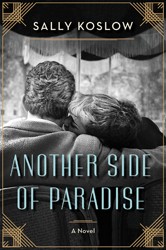If the estate and grounds adjoining those of Jane Austen’s family home had become a Yaddo community — with selected artists given two weeks to two months to create— Austen, who sporadically struggled with deciding titles for her books, might have opted to immortalize the new neighbors with a work titled Pride and Prejudice, and additionally, Sensibility—but Sense? Hardly. Not as Lore Segal saw Yaddo. While mining the same intellectual/personal territory, she did, however, fancifully title her novella Lucinella, a name that could have bobbed up in the 18th century. In this analogy, New York parallels London, as do Segal’s surnames, names like Winterneet and Betterwheatlings, another delicious conceit of earlier (British) times, Segal produced this work in 1976, polishing and segmenting her pastoral, bourgeois tale, including incarnations of Zeus and Hera. Lucinella, a Yaddo resident, alternately targets and embraces her cohorts: “this girl, who says what she actually means, tends to mumble her words inside her mouth, so as to keep the option of eating them.” Yaddo-ites come with emotional and creative baggage, and some flaunt pedigree — having been publicly recognized financially, preferably recently. No burdensome pre-Victorian families here; at Yaddo most enjoy openly legal or, lacking that, spontaneous cohabitation.
For those who remember the 60’s – 70’s with grinning affection, the new Melville House’s edition of Lucinella is a boon, especially in its close-to-Kindle size, albeit with grayish, rather than black, print. For those with wry memories, it changes nothing, but adds fresh admiration for Segal’s facile ability with malicious language.





